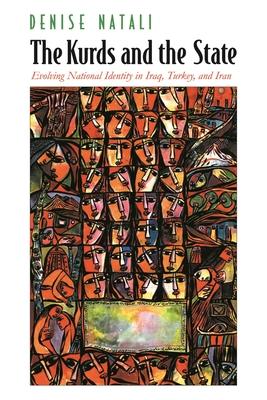In tracing the evolution of Kurdish nationalism, Denise Natali shows that, contrary to popular theories, there is nothing natural or fixed about Kurdish identity or the configuration that Kurdish nationalism assumes. Rather, Kurdish nationalism has been shaped by the development of nation-states in the region. Although Kurdish communities have maintained some shared sense of Kurdishness, Kurdayeti (the mobilization of Kurdish identity) is interwoven with a much larger series of identities within the "political space" of each Kurdish group. Different notions of inclusion and exclusion have modified the political and cultural opportunities of Kurds to express their ethnic identities, and opening the possibility of assuming alternative identities over time.
With this book Natali makes a significant contribution to theoretical, empirical, and policy-based scholarship on the Middle East, the plight of the Kurds, ethnonationalism, and ethnopolitical conflict. Hers is the first comparative work to examine Kurdish nationalism as a function of diverse political spaces. As a vital addition to the literature in the field, this book will supplant a number of standard texts on the Kurds.
The Kurds and the State: Evolving National Identity in Iraq, Turkey, and Iran
In tracing the evolution of Kurdish nationalism, Denise Natali shows that, contrary to popular theories, there is nothing natural or fixed about Kurdish identity or the configuration that Kurdish nationalism assumes. Rather, Kurdish nationalism has been shaped by the development of nation-states in the region. Although Kurdish communities have maintained some shared sense of Kurdishness, Kurdayeti (the mobilization of Kurdish identity) is interwoven with a much larger series of identities within the "political space" of each Kurdish group. Different notions of inclusion and exclusion have modified the political and cultural opportunities of Kurds to express their ethnic identities, and opening the possibility of assuming alternative identities over time.
With this book Natali makes a significant contribution to theoretical, empirical, and policy-based scholarship on the Middle East, the plight of the Kurds, ethnonationalism, and ethnopolitical conflict. Hers is the first comparative work to examine Kurdish nationalism as a function of diverse political spaces. As a vital addition to the literature in the field, this book will supplant a number of standard texts on the Kurds.